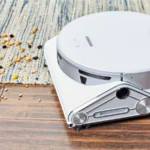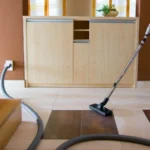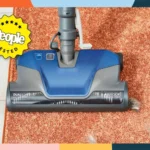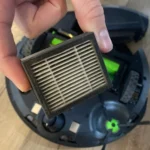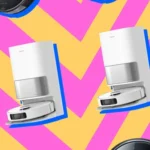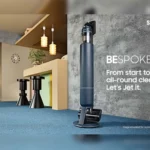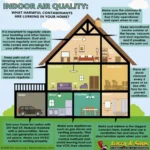As homeowners, we all strive to breathe in clean, fresh air that is free from harmful pollutants and allergens. However, the reality is that the air around us is often contaminated with various particles that can cause respiratory problems and other health issues. That’s where HEPA filtration comes in – a powerful technology that can help improve your home’s air quality and create a healthier living environment for you and your family. In this detailed guide, we will explore what HEPA filtration is, how it works, and most importantly, why it’s so important for your health and well-being. So, let’s dive in!
What is HEPA Filtration?
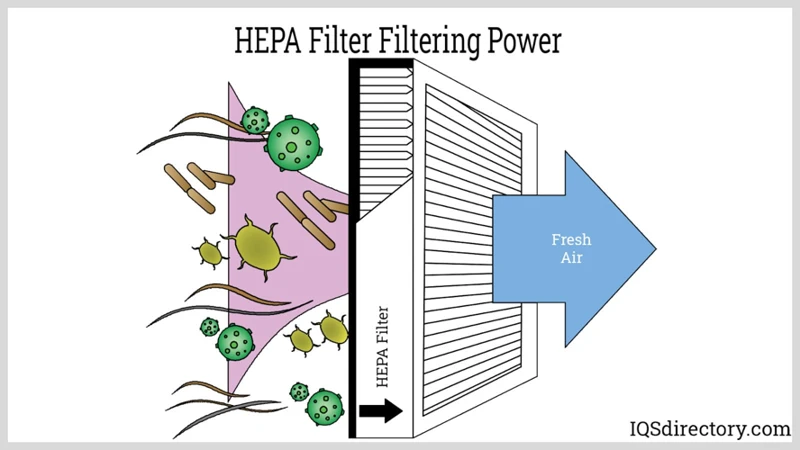
If you’re concerned about the air quality in your home, you may have heard about HEPA filters. HEPA, or High Efficiency Particulate Air, filtration is an effective way to remove harmful particles from the air. But what exactly is HEPA filtration and how does it work? In this section, we’ll explore the ins and outs of HEPA filtration, its definition and standards, as well as how it operates. If you’re curious about HEPA filtration, keep reading to learn more. For those interested in the benefits of smart HEPA vacuums, you can find more information here: Benefits of Smart HEPA Vacuum.
HEPA Definition and Standards
HEPA (High-Efficiency Particulate Air) filtration is a technology that helps remove impurities from the air, which can help improve indoor air quality. HEPA filters are made of a mesh of randomly arranged fibers that trap small particles as they pass through. While the technology behind HEPA filtration may seem straightforward, there are certain definitions and standards that must be met in order for a filter to be considered a true HEPA filter.
The U.S. Department of Energy (DOE) has set standards for HEPA filters, which require that they capture at least 99.97% of particles that are 0.3 microns in size or larger. This means that even the smallest particles, such as those from smoke, dust, and pollen, can be effectively captured by a HEPA filter. It’s important to note that HEPA filters are not all created equal – filters that do not meet the stringent DOE standards cannot be labeled as true HEPA filters.
It’s also worth noting that some air purifiers or vacuums may claim to have “HEPA-type” or “HEPA-like” filters, but these filters have not been verified by the DOE and are not guaranteed to provide the same level of filtration as true HEPA filters. When shopping for an air purifier or vacuum with a HEPA filter, it’s important to look for the “true HEPA” label to ensure that you are getting a filter that meets the highest standards for air filtration.
Using a HEPA filter in your home can provide a number of benefits, including reduced allergens, improved sleep, and overall better indoor air quality. To learn more about the benefits of HEPA filtration in your home, check out our article on HEPA Filtration and Allergies.
Below is a table summarizing the DOE standards for HEPA filters:
| HEPA Filter Standard | Particle Size | Efficiency |
|---|---|---|
| HEPA | 0.3 μm | 99.97% |
| ULPA | 0.12 μm | 99.999% |
| Super-ULPA | 0.1 μm | 99.9999% |
As you can see, there are different types of HEPA filters, including ULPA (Ultra-Low Penetration Air) and Super-ULPA filters, which have even higher filtration efficiencies for even smaller particles. HEPA filters are a highly effective way to reduce pollutants and impurities in your home’s air, helping you to breathe easier and feel better overall.
How Does HEPA Filtration Work?
HEPA filtration is based on the principle of capturing particles in a filter that can only allow air to pass through. HEPA stands for High-Efficiency Particulate Air, which refers to the filter’s ability to trap tiny particles that other filters may miss.
HEPA Definition and Standards
The HEPA standard was created by the U.S. military during World War II to contain radioactive particles. Today, a HEPA filter is defined as one that can capture particles as small as 0.3 microns with an efficiency of 99.97%. This means that for every 10,000 particles that pass through the filter, only three or fewer are allowed to escape.
How Does HEPA Filtration Work?
HEPA filters are made of a mat of randomly arranged fibers that trap particles as air passes through them. The fibers create a maze of twists and turns that make it difficult for particles to pass through. The smallest particles, such as viruses and bacteria, are captured by interception where they collide with the fibers and stick to them. Slightly larger particles, like pollen and dust, are captured by impaction where they collide with the fibers and get stuck. Even larger particles, such as pet dander and hair, are trapped by diffusion where they move in random motions and eventually collide with the fibers.
To be effective, a HEPA filter needs to be the right size and thickness to capture a sufficient amount of particles. Additionally, it needs to be properly maintained and replaced regularly to prevent clogging and airflow restriction.
For more information on how HEPA filtration compares to standard filtration, see our article on HEPA Filtration vs. Standard Filtration.
To learn about how HEPA filtration can benefit pet owners, check out our article on HEPA Filtration and Smart Vacuums for Pet Owners.
Conclusion
HEPA filtration offers an excellent way to improve the air quality in your home. By capturing particles that would otherwise circulate in the air, HEPA filters can reduce allergies, asthma, and other health problems caused by indoor air pollution. Regular maintenance of HEPA filters is important to ensure they continue to function properly. For tips on maintaining your smart vacuum’s HEPA filter, check out our article on Smart Vacuum HEPA Filter Maintenance. Don’t be misled by common HEPA filtration myths out there. For the truth, check out our article on HEPA Filtration Myths Debunked.
Why is HEPA Filtration Important for Your Home?
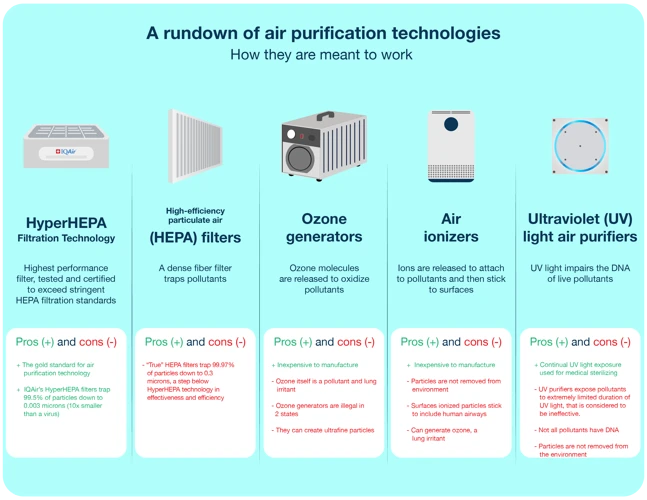
When it comes to maintaining a healthy living environment in your home, one aspect that should not be overlooked is the quality of the air you breathe. The truth is, indoor air pollution is a growing concern and can have negative effects on your health. This is where HEPA filtration comes into play. HEPA filtration is one of the most effective ways to improve the air quality in your home. In this section, we will explore the importance of HEPA filtration and its numerous benefits. We will also discuss how HEPA filtration can improve your health, and provide tips on how to choose the best HEPA vacuum cleaner. Additionally, we’ll dive into the proper maintenance methods to ensure your HEPA filter is working efficiently. Let’s get started.
Benefits of HEPA Filtration
A HEPA (High-Efficiency Particulate Air) filter is a type of air filter that traps harmful particles, such as dust, pet dander, and pollen, from entering the air. But what are the specific benefits of using a HEPA filter? Let’s take a closer look in the table below:
| Benefit | Description |
|---|---|
| Improved air quality | A HEPA filter can trap up to 99.97% of particles as small as 0.3 microns. This means that the air in your home will be cleaner and healthier for you to breathe. |
| Allergy relief | HEPA filters trap allergens such as pollen and pet dander, which can cause allergic reactions. By using a HEPA filter, you may experience allergy relief. |
| Reduced asthma triggers | Poor air quality can trigger asthma symptoms. By using a HEPA filter, you can reduce the amount of asthma triggers in the air. |
| Elimination of odors | HEPA filters can also trap odors, such as cigarette smoke or cooking smells, leaving your home smelling fresh. |
| Long-lasting | HEPA filters have a longer lifespan than regular air filters, making them a cost-effective option in the long run. |
| Environmentally friendly | Unlike many other air purification methods, HEPA filters can be a more environmentally-friendly alternative, as they do not produce harmful by-products. |
As you can see, the benefits of using a HEPA filter go beyond simply cleaning the air in your home. It can also improve your overall health by reducing allergens and asthma triggers, as well as being a longer-lasting and cost-effective option. Plus, it’s an environmentally-friendly choice compared to other air purification methods.
If you’re interested in learning more about HEPA filters for your home, check out our guide on how HEPA filtration is eco-friendly. Additionally, for those who want to know more about smart vacuum cleaners with HEPA filters, we have a great resource on HEPA filtration enabled smart vacuums.
How HEPA Filtration Can Improve Your Health
HEPA filtration is more than just an air purifier for your home, it can actually improve your health in several ways. Here’s a list of some of the most important benefits:
| Benefit | Description |
|---|---|
| Allergy relief | HEPA filters are highly effective at removing common allergens such as pollen, pet dander, and dust mites from the air. Keeping these allergens out of your home can help alleviate allergy symptoms such as sneezing, runny nose, and itchy eyes. |
| Asthma management | Individuals with asthma can experience significant improvements in their condition when using HEPA filtration. By removing irritants from the air, HEPA filters can reduce asthma attacks and improve overall lung function. |
| Better sleep | HEPA filtration can also improve sleep quality by removing airborne particles that can irritate the sinuses and interfere with breathing. By breathing cleaner air, you may find that you wake up feeling more rested and refreshed. |
| Reduced risk of respiratory infections | HEPA filters remove bacteria, viruses, and other microorganisms from the air, helping to reduce the risk of respiratory infections such as the flu, colds, and pneumonia. |
| Better indoor air quality | HEPA filtration can significantly improve the overall quality of the air inside your home, reducing the amount of particles and pollutants that you breathe in on a daily basis. This is especially important for individuals with compromised immune systems, as well as children and the elderly. |
In addition to the above benefits, HEPA filtration can also reduce unpleasant odors in your home and improve the efficiency of your HVAC system. Investing in a HEPA filter for your home can provide a long list of benefits, making it a smart choice for those looking to improve their health and overall wellbeing.
When it comes to choosing the best HEPA filter for your home, there are many factors to consider. If you need help, check out our article on smart vacuum cleaners with HEPA filters.
How to Choose the Best HEPA Vacuum Cleaner?
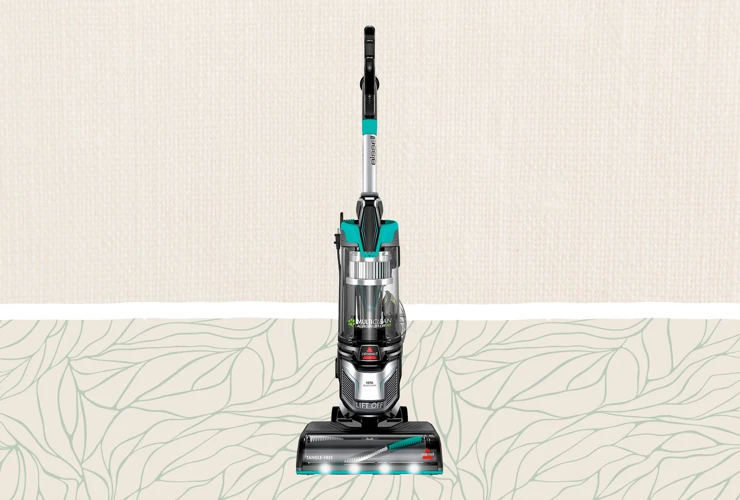
Choosing the right HEPA vacuum cleaner can be a perplexing task, especially with the abundance of options on the market. It’s important to consider several factors before making a decision, including the size of your home, types of surfaces to be cleaned, and budget. In this section, we will explore these factors in more detail and provide recommendations for some of the top HEPA vacuum cleaners available. By the end of this section, you’ll have a better understanding of what to look for when selecting a HEPA vacuum cleaner that meets your specific needs.
Factors to Consider
When choosing the best HEPA vacuum cleaner for your home, there are several factors to consider. You want to make sure you select a vacuum that suits your lifestyle and cleaning needs. Here are some important factors to keep in mind:
- Filtration: Of course, the most important factor when choosing a HEPA vacuum cleaner is the filtration system. Make sure to check that the vacuum you’re considering has a true HEPA filter that can capture at least 99.97% of particles as small as 0.3 microns. Some vacuums claim to have “HEPA-like” filters or other types of filtration, but only genuine HEPA filters will ensure that the air in your home is as clean as possible.
- Power: You’ll want to consider the vacuum’s suction power, measured in watts or amps. The more power a vacuum has, the more effective it will be at picking up dirt, debris, and allergens. However, keep in mind that high-power vacuums may also be louder and heavier.
- Bagged vs bagless: HEPA vacuum cleaners can either be bagged or bagless. Bagged vacuums tend to be more hygienic and better for people with allergies, as they contain the dust and debris in a sealed bag which can be disposed of easily. Bagless vacuums, however, save you money on bags and are more eco-friendly since you don’t have to discard bags regularly.
- Attachments: Consider the attachments that come with the vacuum, such as crevice tools, extension wands, or upholstery brushes. These tools can help you more effectively clean hard-to-reach places and various surfaces.
- Price point: Finally, consider your budget. HEPA vacuum cleaners can range in price from around $50 to over $1000. Determine how much you are willing to spend and then look for a vacuum within your budget that meets your needs.
By considering these important factors, you can find the best HEPA vacuum cleaner for your home and ensure that you are breathing the cleanest air possible.
Top HEPA Vacuum Cleaners on the Market
When it comes to selecting the right HEPA vacuum cleaner for your home, there are many great options available in the market. Here are some of the top HEPA vacuum cleaners that you should consider:
| Brand | Model | Features | Price |
|---|---|---|---|
| Dyson | V11 Absolute Cordless Vacuum | High Torque Cleaner Head, LCD Screen Display, Up to 60 minutes of run time | $699.99 |
| Shark | Navigator Lift-Away Professional with HEPA Filter | Anti-Allergen Complete Seal Technology, XL-capacity dust cup, advanced swivel steering | $249.99 |
| Miele | Complete C3 Marin Canister Vacuum Cleaner | 6-stage variable speed motor, Automatic setting, HEPA AirClean filter system | $1,099.00 |
| Honeywell | HPA300 True HEPA Air Purifier Vacuum | True HEPA filter, Turbo Clean setting, Filters and circulates room air up to 5 times per hour | $249.99 |
Dyson V11 Absolute Cordless Vacuum: This HEPA vacuum cleaner is cordless and has a long battery life of up to 60 minutes of run time. It features a High Torque cleaner head and an LCD screen display, making it easy to use and operate.
Shark Navigator Lift-Away Professional with HEPA Filter: This vacuum cleaner is designed with Anti-Allergen Complete Seal Technology and an XL-capacity dust cup, which makes it an excellent option for individuals with allergies. It also features advanced swivel steering, making it easy to move around furniture.
Miele Complete C3 Marin Canister Vacuum Cleaner: This vacuum cleaner features a 6-stage variable speed motor and Automatic setting, which makes it an ideal option for individuals with delicate rugs and carpets. It also features a HEPA AirClean filter system, which ensures optimal air filtration.
Honeywell HPA300 True HEPA Air Purifier Vacuum: This vacuum cleaner is designed with a True HEPA filter, which captures up to 99.97% of particles in the air. It also features a Turbo Clean setting, which quickly filters and circulates room air up to 5 times per hour.
Consider the features and price of each option carefully to ensure you select the HEPA vacuum cleaner that is right for your home and budget.
How to Maintain Your HEPA Vacuum Cleaner?
After investing in a HEPA vacuum cleaner to improve the air quality in your home, it’s essential to know how to maintain it properly to ensure its longevity and efficiency. Cleaning and replacing HEPA filters and other parts regularly will not only save you from costly repairs but also ensure the air quality in your home is always at its best. In this section, we’ll discuss the steps you need to take to maintain and prolong the lifespan of your HEPA vacuum cleaner. So let’s dive in and find out how to keep your HEPA vacuum running in tip-top shape!
Cleaning and Replacing HEPA Filters
Once you have invested in a HEPA vacuum cleaner, it is essential to maintain it properly to ensure that it continues to function effectively. One of the most crucial components of a HEPA vacuum cleaner is its filters, which capture the pollutants and allergens in your home’s air. Over time, these filters become clogged and lose their effectiveness, which is why they require regular cleaning and replacement. In this section of the article, we will discuss the best practices for cleaning and replacing HEPA filters.
Frequency of Cleaning and Replacement
The frequency with which you need to clean or replace your HEPA filters can vary depending on a variety of factors such as the level of dust and allergens in your home and how often you use your vacuum cleaner. In general, it is recommended to clean or replace your HEPA filters every six to twelve months to ensure that they are working effectively.
Cleaning the Filters
Cleaning the HEPA filters is a simple process that you can easily do at home. The first step is to remove the filters from the vacuum cleaner. You can then use a soft-bristled brush or a vacuum cleaner attachment to remove the dust and debris that has accumulated on the filters. Once you have removed the visible debris, you can wash the filters in warm water and mild soap. Ensure that you do not use any harsh chemicals or detergents as they can damage the filters’ effectiveness. After washing, allow the filters to air dry completely before reinserting them into the vacuum cleaner.
Replacing the Filters
Even with proper cleaning, over time, the HEPA filters will become less effective, and the vacuum cleaner’s suction power will decrease. This signifies that it’s time to replace your HEPA filters. Some vacuum cleaner models come with a replacement indicator light that signals when it’s time to change the filters. If your vacuum cleaner does not have this feature, it’s essential to keep track of how long it has been since you last cleaned or replaced the filters.
Conclusion
Cleaning and replacing HEPA filters are essential to ensure that your HEPA vacuum cleaner is operating at maximum efficiency. They are simple maintenance tasks that can be done at home but can have a significant impact on your home’s air quality. By following the guidelines outlined above, you can ensure that your HEPA vacuum cleaner is always working at its best to keep your home clean and allergen-free.
Regular Maintenance Tips
To ensure that your HEPA vacuum cleaner continues to perform effectively, it is important to follow a regular maintenance schedule. Here are some tips for maintaining your HEPA vacuum cleaner:
| Tip | Description |
|---|---|
| Clean the brush roll | The brush roll should be cleaned regularly to remove any tangled hair, fibers or debris that may accumulate. This can be done using scissors or a brush to remove any entanglements. |
| Empty the dustbin regularly | The dustbin of the vacuum cleaner should be emptied regularly to ensure that it is not too full, which may affect the suction power of the vacuum cleaner. Check the level of the dustbin before using the vacuum cleaner each time and empty it when necessary. |
| Replace HEPA filters | HEPA filters should be replaced periodically, typically every 6-12 months, depending on usage. Check the user manual to determine the recommended replacement intervals for your specific vacuum cleaner. |
| Clean or replace other filters | Other filters that are present in the vacuum cleaner, such as pre-filters and exhaust filters, should be cleaned or replaced as needed. Check the user manual to determine if and when these filters should be replaced or cleaned. |
| Check the vacuum cleaner’s components | Periodically inspect the components of the vacuum cleaner, such as the hose, nozzles, and attachments, for any signs of damage, wear or tear. Replace any components that are damaged or worn out. |
| Clean the vacuum cleaner’s exterior | The exterior of the vacuum cleaner should be cleaned regularly using a soft, damp cloth to remove any dust, dirt or debris that may accumulate. Avoid using abrasive or harsh cleaners that may damage the surface of the vacuum cleaner. |
By following these regular maintenance tips, you can extend the lifespan of your HEPA vacuum cleaner and ensure that it continues to effectively filter and clean the air in your home.
Conclusion
In conclusion, obtaining clean air in your home is critical to improving the overall quality of life. Investing in a high-quality HEPA filtration system is a great way to achieve this goal. A HEPA filter can significantly remove harmful particles from the air, ranging from pollen and dust to pet dander and even viruses. This level of filtration brings important benefits to people with allergies, asthma, or other respiratory problems, as well as to children, the elderly, and anyone who values a clean living environment.
It is important to understand how a HEPA filter works and what standards are required to meet the HEPA designation. Additionally, choosing a HEPA vacuum cleaner that meets your specific needs can further enhance the air quality in your home. Factors to consider include the type of flooring in your home, the size of the vacuum cleaner, and the level of noise that it produces.
Once you have invested in a HEPA filtration system, however, it is equally important to maintain it properly. This involves cleaning and replacing the HEPA filters regularly, as well as performing routine maintenance on your vacuum cleaner. By following these simple steps, you can rest assured that your HEPA filtration system is working optimally to keep the air in your home clean and healthy.
In summary, the importance of HEPA filtration for your home cannot be overstated. By taking the time to research and invest in a high-quality system, and by maintaining it properly, you can breathe cleaner air and live a healthier, more comfortable life.
Frequently Asked Questions
1. Can HEPA filtration remove all pollutants from the air?
No, while HEPA filtration can remove most allergens from the air, it is not effective against gases and odors.
2. How often should I replace the HEPA filter in my vacuum cleaner?
You should replace your HEPA filter every 6-12 months, depending on usage and the manufacturer’s recommendations.
3. Can HEPA filtration help with allergies and asthma?
Yes, HEPA filtration can help alleviate allergies and asthma symptoms by removing allergens and other harmful particles from the air.
4. Are there any downsides to using a HEPA filter?
One downside of using a HEPA filter is that it can be more expensive than other types of filters. Additionally, some HEPA filters may require more frequent replacements.
5. How do I know if my vacuum cleaner has a HEPA filter?
You can check the product manual or specifications to see if your vacuum cleaner has a HEPA filter. It may also be labeled on the machine itself.
6. Can HEPA filtration systems be used in commercial settings?
Yes, HEPA filtration systems can be used in commercial settings such as hospitals, laboratories, and clean rooms to maintain air quality.
7. Can a HEPA filter remove COVID-19 particles from the air?
While HEPA filters are effective at removing most airborne particles, they have not been proven to remove COVID-19 particles specifically.
8. Can pets affect the effectiveness of a HEPA filtration system?
Pets can shed dander and hair which can affect the effectiveness of a HEPA filtration system. It is recommended to regularly vacuum and clean to maintain air quality.
9. Can a HEPA filter be washed or cleaned?
Some HEPA filters can be washed, but it is important to follow the manufacturer’s instructions to avoid damaging the filter.
10. Are there any types of vacuums that are not compatible with HEPA filters?
HEPA filters can be compatible with most types of vacuums, but it is important to check the manufacturer’s guidelines to ensure proper usage.


